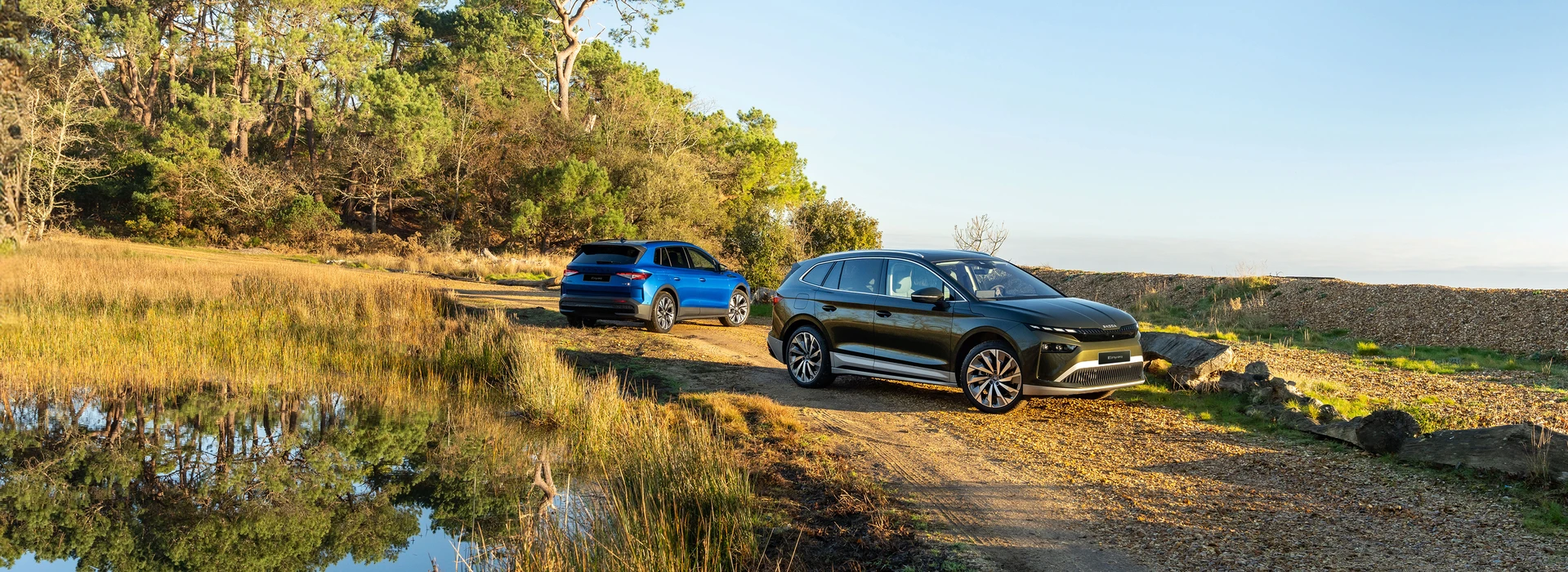Besides the environmental benefits, a big appeal of driving an electric or hybrid car is the reduced running costs. And that includes the savings you could make by replacing regular top-ups at filling stations with electric charging.
This page tells you about charging methods you could use and helps you calculate your fuel costs. Jump in and find out how much you could save.
Your charging options
Say goodbye to range anxiety
Introducing the New All-Electric Elroq
The Elroq is Škoda’s thrilling new compact all-electric SUV. Ideal for every adventure, the Elroq offers a Worldwide Harmonised Light Vehicle Procedure range of a whopping 360 miles. It also fast charges from 10% to 80% in 28 minutes†.
Electric Car Cost Calculator
Estimate charging costs
Offers and incentives
As part of the push towards transitioning to an electric future, there is a range of government grants and incentives. See if you could benefit from one of these moneysaving initiatives by following the link below.
